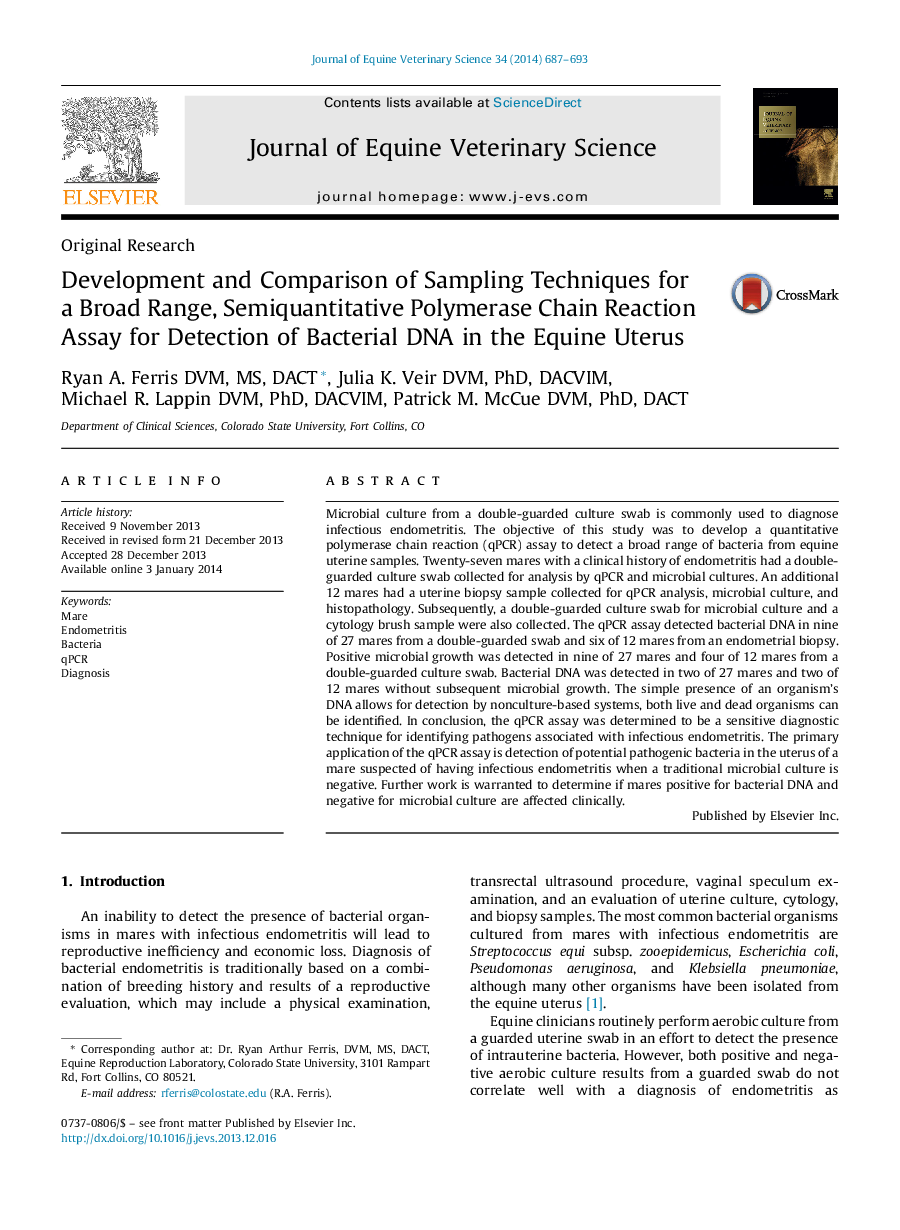| کد مقاله | کد نشریه | سال انتشار | مقاله انگلیسی | نسخه تمام متن |
|---|---|---|---|---|
| 2394795 | 1101532 | 2014 | 7 صفحه PDF | دانلود رایگان |

Microbial culture from a double-guarded culture swab is commonly used to diagnose infectious endometritis. The objective of this study was to develop a quantitative polymerase chain reaction (qPCR) assay to detect a broad range of bacteria from equine uterine samples. Twenty-seven mares with a clinical history of endometritis had a double-guarded culture swab collected for analysis by qPCR and microbial cultures. An additional 12 mares had a uterine biopsy sample collected for qPCR analysis, microbial culture, and histopathology. Subsequently, a double-guarded culture swab for microbial culture and a cytology brush sample were also collected. The qPCR assay detected bacterial DNA in nine of 27 mares from a double-guarded swab and six of 12 mares from an endometrial biopsy. Positive microbial growth was detected in nine of 27 mares and four of 12 mares from a double-guarded culture swab. Bacterial DNA was detected in two of 27 mares and two of 12 mares without subsequent microbial growth. The simple presence of an organism's DNA allows for detection by nonculture-based systems, both live and dead organisms can be identified. In conclusion, the qPCR assay was determined to be a sensitive diagnostic technique for identifying pathogens associated with infectious endometritis. The primary application of the qPCR assay is detection of potential pathogenic bacteria in the uterus of a mare suspected of having infectious endometritis when a traditional microbial culture is negative. Further work is warranted to determine if mares positive for bacterial DNA and negative for microbial culture are affected clinically.
Journal: Journal of Equine Veterinary Science - Volume 34, Issue 5, May 2014, Pages 687–693